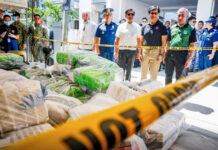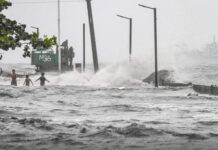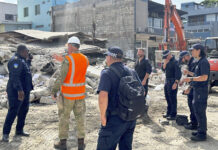BANGKOK (AP) – Some human rights advocates are urging governments to impose sanctions against supplying aviation fuel to Myanmar as its security forces carry out air strikes against opponents of the army-led administration.
Calls to cut off jet fuel supplies gained attention after several major oil and gas companies, including TotalEnergies and Chevron, said they would withdraw from ventures in the country, potentially reducing flows of hard currency to the military.
While Myanmar still produces oil and gas in partnerships with Thai, Japanese, Chinese and South Korean companies, it has no large-scale modern refineries and imports all its aviation fuel for both civilian and military use.
Widespread non-violent protests followed a February 1, 2021, military takeover that ousted the elected government of Aung San Suu Kyi. An armed resistance has grown after peaceful protests were put down with lethal force. The country now faces an insurgency that some experts characterise as a civil war.
More than 1,560 civilians have been killed by the security forces, including some in air strikes, according to monitoring groups.
So far, no governments have banned or otherwise sanctioned supplying aviation fuel to Myanmar, although the British government recently urged companies to avoid providing products that might be used in such attacks.
“The Myanmar military regularly uses air strikes against civilian targets,” it said in a statement. “If dealing with any entity linked to Myanmar’s aviation sector, businesses should conduct thorough supply chain diligence to ensure that commodities such as jet fuel do not reach the military.”
In the past, the United States has barred provision of aviation fuel to Russian forces in Syria.
This week, the European Union imposed sanctions against state-owned Myanma Oil and Gas Enterprise, a joint venture partner in all the country’s offshore gas projects. That includes the Yadana gas field, which TotalEnergies and Chevron recently said they would quit.




















































